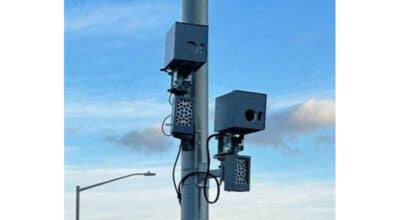Practice fire safety
Published 9:15 am Monday, November 7, 2016
Fortunately, the fire at Carrsville Elementary School this past Wednesday hurt no one because the incident took place in the early morning hours. Apparently, an electrical short within a computer that was plugged into a hallway outlet started the trouble.
Undoubtedly, the school division will review what happened, and consider what actions can be taken to prevent a repeat occurrence elsewhere.
This would be an appropriate time for schools in Western Tidewater to again review procedures for dealing with fires that could occur when classes are in session. Fire drills serve to teach a lesson different from arithmetic, but are no less valuable.
The accident also reminds us that we are entering the season when house fires are especially prevalent. Fall and winter are especially dangerous because of the systems we use to heat our homes and the extra electrical loads both those systems and Christmas trees can require.
According to the National Fire Protection Association, in 2014, U.S. fire departments responded to an estimated 367,500 home structure fires. These fires caused 2,745 deaths, 11,825 civilian injuries, and $6.8 billion in direct damage.
The NFPA estimates that cooking equipment is the leading cause of fire-related injuries, with heating equipment coming in second place in that category.
Among heating-related fires, the association says, the leading factor contributing to those conflagrations was a failure to clean the systems, especially built-up creosote in chimneys. Portable or fixed space heaters, including wood stoves, were involved in one-third of home heating fires and four out of five home heating deaths.
Half of those deaths occurred because the heaters were placed too close to flammable materials, such as clothing, furniture, mattresses or draperies.
There are some simple things you can do to keep yourself and your family safe this season:
• Install smoke detectors and keep fresh batteries in them. The NFPA states that three out of five home fires that resulted in deaths during the 2009-2013 period took place in homes that lacked working smoke alarms. Smoke alarms should be replaced every 10 years, and their batteries should be replaced every year — this weekend is a good time to do that.
• Plan how to get out. Make sure that every member of your family knows at least two routes to get out of the house from every room and that they understand they need to do so immediately upon hearing the sound of the smoke alarm.
• Clean your dryer filter. Many fires result from lint buildup in the clothes dryer. Clean it before each load.
• Use fireplaces safely. Have your chimney inspected and/or cleaned at the beginning of each fire season. Make sure an adult is always present when the fireplace is in use. And extinguish the flames when you’re ready for bed or leaving the house.




